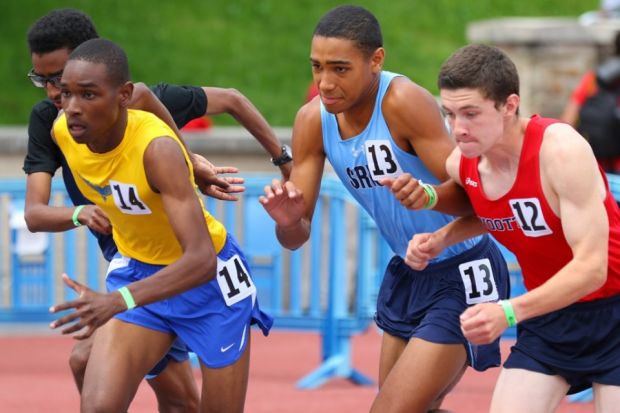Some things never go away. Take nerves, a sensation that every athlete knows and deals with regularly. After three years of running for the varsity cross country and track teams, I thought I would have grown impervious to pre-race nerves. I remember the half-hour car rides to my eighth grade track meets, when I wanted to sink into the car’s passenger seat Get Out-style, as a thing of the past, but the pressure and hype of my competitions now, from early season time trials to state championships in front of thousands of spectators, can still induce panics in my head as I toe the starting line.
I’ve had days when I filled with dread for the evening’s meet, wishing I could be doing anything else rather than submit to the pressure cooker of performance. From my experience as an athlete, these are the best ways to cope with nerves and use them to elevate, not hinder, performance.
1. Know what is at stake
Striking the delicate balance between motivation and relaxation can be difficult before competition, affecting everything from warm-up routine to pre-game music. Too much motivation can heighten the stress on the event, while relaxing can cause one to ease up on the pedal. But in all cases, keeping the event in perspective is a crucial and comforting part of reaching peak performance. The scoreboard may have great implications for the playoffs, but when the final buzzer sounds, the more important things, such as the support of family and friends and the opportunity, will be constant no matter the score.
2. Settle in and relax through competition
Nerves can petrify an athlete before they start their game or competition, but can also affect their in-game performance. Smoothing the transition between pre-competition and the competition itself is essential, and one approach I’ve adopted is settling into a comfort zone once in competition and taking note of the little victories to provide positive encouragement.
3. Think, and act, positively
I’ve been surprised by how many elite, All-State athletes I’ve overheard before races express doubt or give excuses why they won’t succeed in response to the nerves they feel and the possibility of failure. In addition to disparaging thoughts, athletes can use body language to express nervousness or dread. However, this negative self-talk destroys the confidence needed to succeed in sport and prevents an athlete from reaching their potential. By thinking and acting in a way that anticipates success and uses positive reinforcement, success is more likely, even if you need to pretend. As my coach would say, fake it ‘till you make it.
Do nerves ever completely go away? No, they probably won’t, and they shouldn’t. Feeling pressure before a competition is just part of being, in the words of Theodore Roosevelt, a man in the arena. Instead, learn to manage nerves and you will be able to use them to your advantage.
John Riker
Online Editor








![Junior Grace Song rewatches the trailer for Anora. Promoted as "A Love Story from Sean Baker," it is the eighth feature film under Baker's belt starring Mikey Madison in the titular role. "[Anora] accurately represents women overseen and easily taken advantage of. It emotionally enticed me. The ending is so good," Song said.](https://woottoncommonsense.com/wp-content/uploads/2024/11/Rc5RQTdjtUFtyT7IyQe1rSxkpOTc6NoksY8jtoop-e1732201365565-1200x900.jpg)





